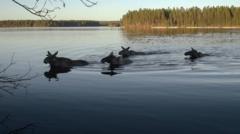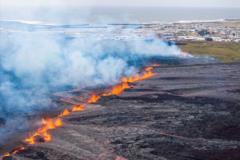The decision allows two whaling ships to continue operations, despite significant welfare objections, as Iceland remains one of the few countries permitting this practice.
Iceland Greenlights Whaling for Five More Years Amid Controversy

Iceland Greenlights Whaling for Five More Years Amid Controversy
Iceland permits the hunting of 426 whales annually, sparking backlash from animal welfare advocates.
Iceland's outgoing conservative government has granted five-year permits to two whaling vessels, permitting the capture of a total of 426 whales each season, comprising 209 fin whales and 217 minke whales. The whaling season runs from June through September. This decision has drawn sharp criticism from animal rights and environmental groups who argue it undermines animal welfare and environmental conservation efforts.
The official notice regarding these permits claims they provide "some predictability" for the whaling industry, asserting that the established quotas were based on scientific advice. Iceland joins only Japan and Norway as one of the last three countries globally where whaling remains legal, targeting only fin and minke whales while other populations are protected.
Despite the renewed permits, previous whaling seasons had experienced complications. The 2023 whaling season was notably cut short, lasting only three weeks and resulting in 24 fin whales killed, far below the quota of 209. Additionally, whaling was temporarily halted earlier in the year following a government inquiry that revealed the methods being used did not meet animal welfare standards, with explosive harpoons reportedly causing extensive suffering to the whales.
Sharon Livermore, director of the International Fund for Animal Welfare's marine conservation programmes, expressed disappointment at the decision, stating that it reflects the undue influence of affluent whalers on government policy even as leadership transitions.
The recent elections that saw the ruling Independence Party unseated by the centre-left Social Democratic Alliance have raised questions about future whaling policies. In defense of the permits, the government cited recommendations from the Norwegian Fisheries Agency, emphasizing an approach focused on sustainability and precaution.
The official notice regarding these permits claims they provide "some predictability" for the whaling industry, asserting that the established quotas were based on scientific advice. Iceland joins only Japan and Norway as one of the last three countries globally where whaling remains legal, targeting only fin and minke whales while other populations are protected.
Despite the renewed permits, previous whaling seasons had experienced complications. The 2023 whaling season was notably cut short, lasting only three weeks and resulting in 24 fin whales killed, far below the quota of 209. Additionally, whaling was temporarily halted earlier in the year following a government inquiry that revealed the methods being used did not meet animal welfare standards, with explosive harpoons reportedly causing extensive suffering to the whales.
Sharon Livermore, director of the International Fund for Animal Welfare's marine conservation programmes, expressed disappointment at the decision, stating that it reflects the undue influence of affluent whalers on government policy even as leadership transitions.
The recent elections that saw the ruling Independence Party unseated by the centre-left Social Democratic Alliance have raised questions about future whaling policies. In defense of the permits, the government cited recommendations from the Norwegian Fisheries Agency, emphasizing an approach focused on sustainability and precaution.




















